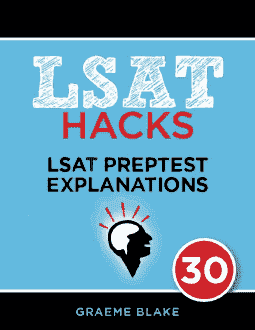QUESTION TEXT: During the recent economic downturn, banks contributed…
QUESTION TYPE: Necessary Assumption
CONCLUSION: Banks will lend more money if those standards are relaxed.
REASONING: Banks contributed to the downturn by loaning less money. And prior to the downturn, regulatory standards for banks were tightened.
ANALYSIS: This is a bad argument. It make a causation-correlation error. Just because one thing happened first (regulatory tightening) doesn’t mean that it caused another thing (loaning less money.)
It’s quite possible that the regulatory tightening hardly causes any change in loan policies. Banks may have simply been loaning less because they always loan less in hard times.
___________
- CORRECT. If the downturn caused a massive decrease in bank funds then banks might not have anything to lend even if regulatory standards are relaxed.
- Actually the argument seems to implying that the standards were a cause.
- The argument cares about the effects of the regulatory standards. The reasons for them are irrelevant.
- This assumption flatly contradicts the information in the stimulus. It can’t be true.
- Why would this assumption be necessary? The argument is stronger if relaxing the standards could cause so much loaning that the downturn was reversed.

Free Logical Reasoning lesson
Get a free sample of the Logical Reasoning Mastery Seminar. Learn tips for solving LR questions


Leave a Reply